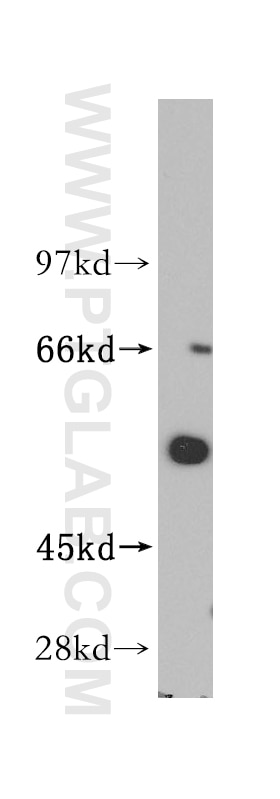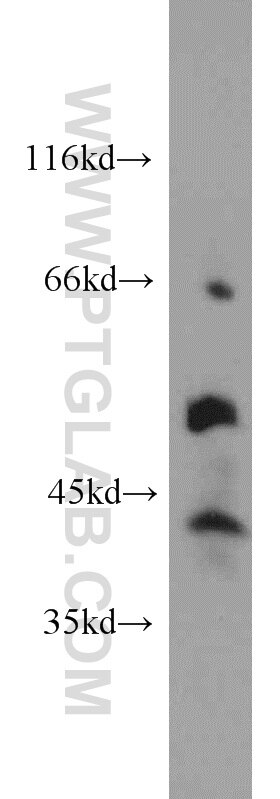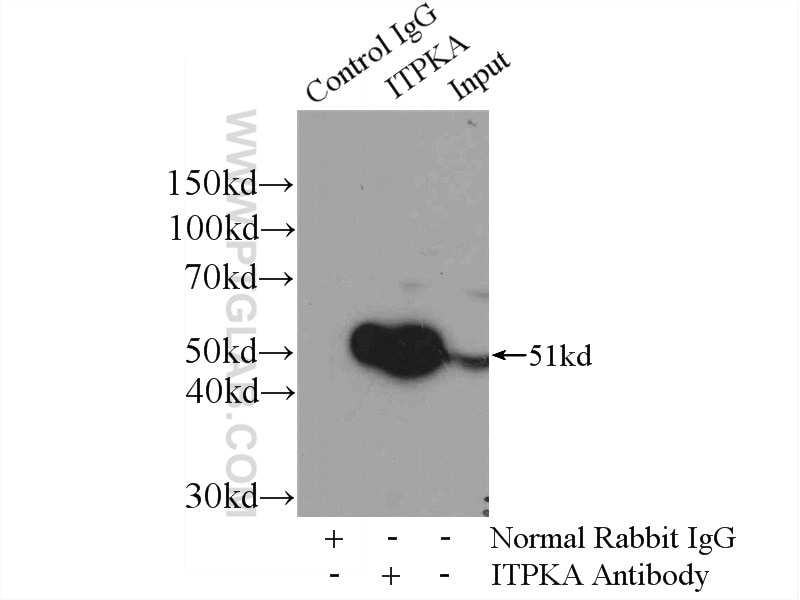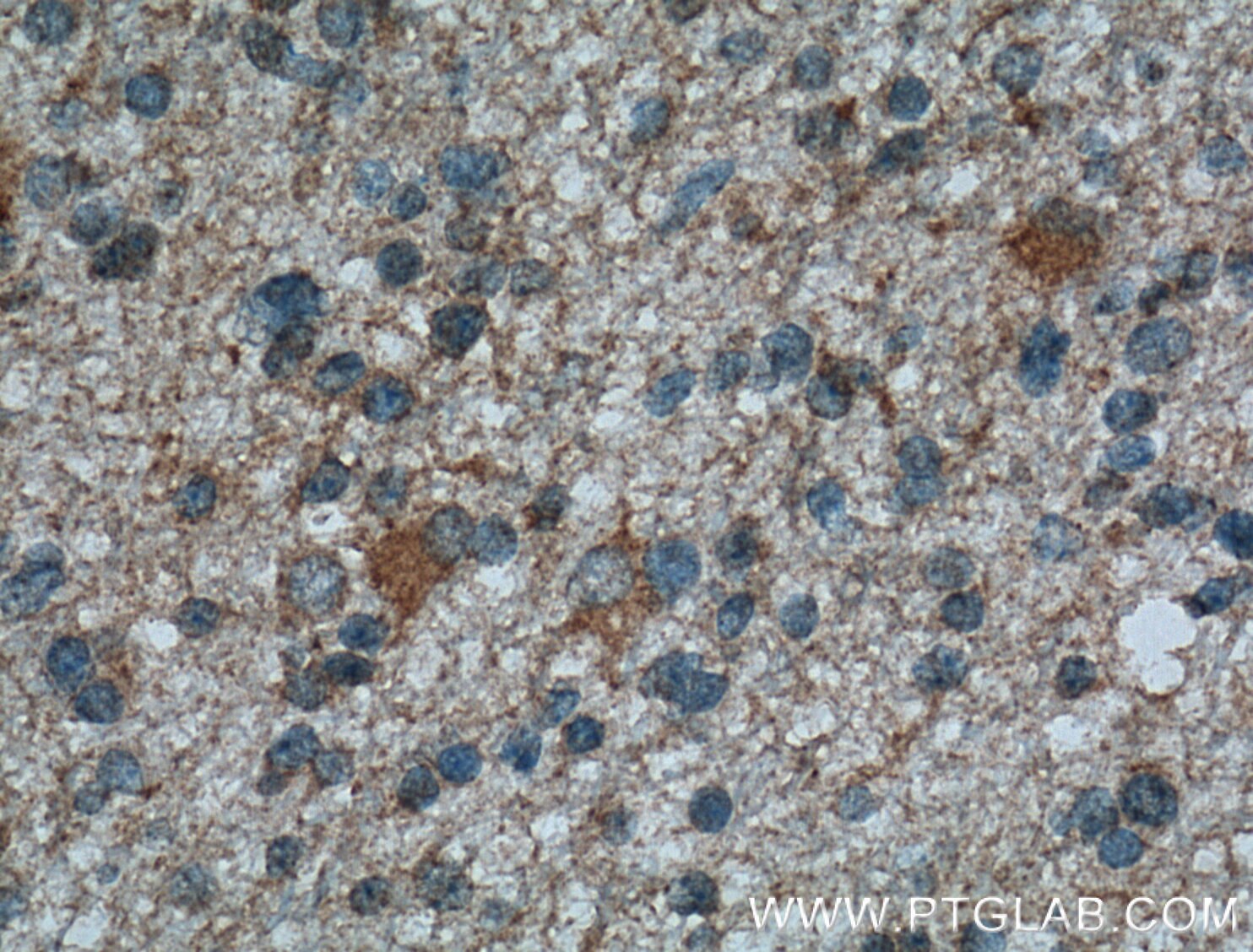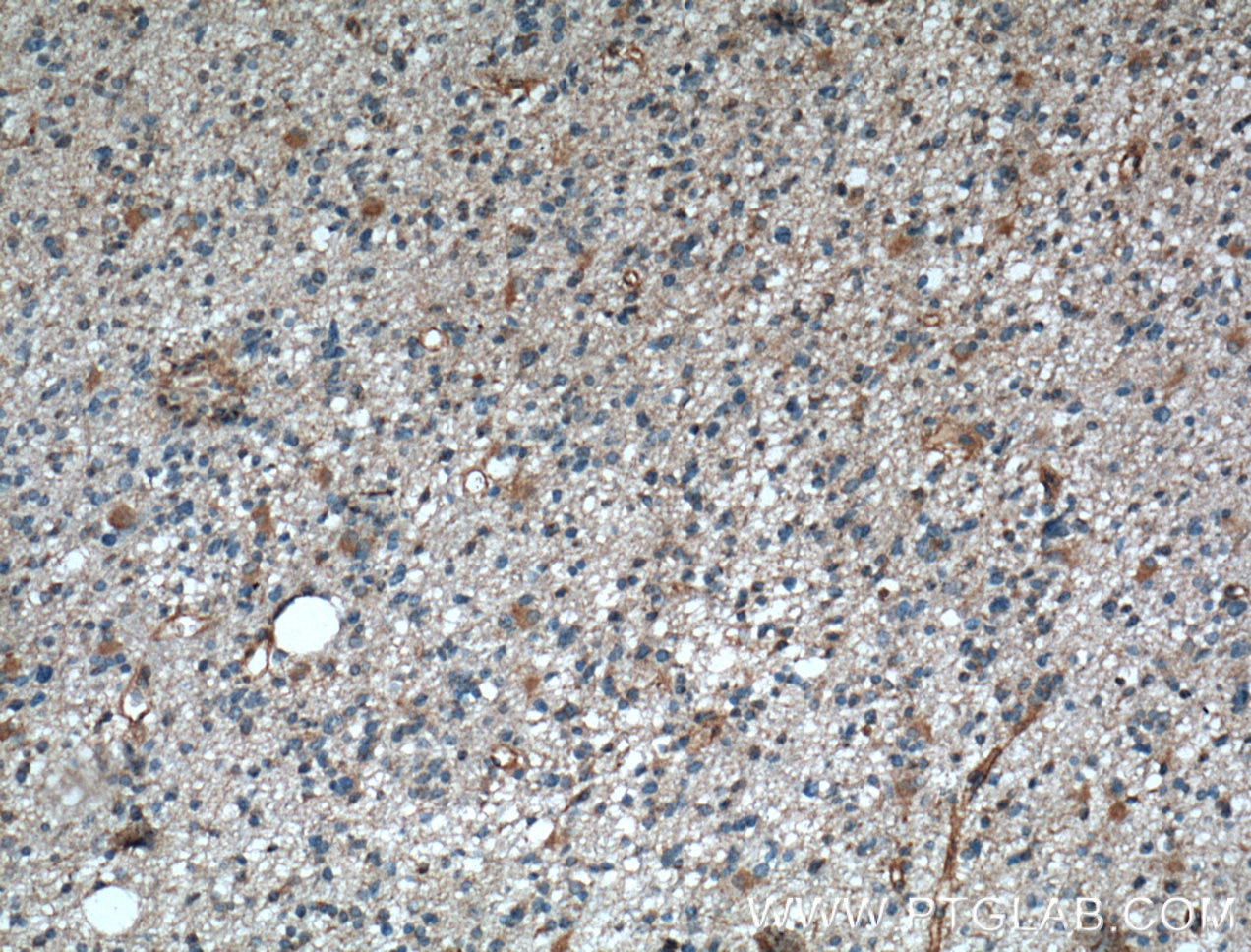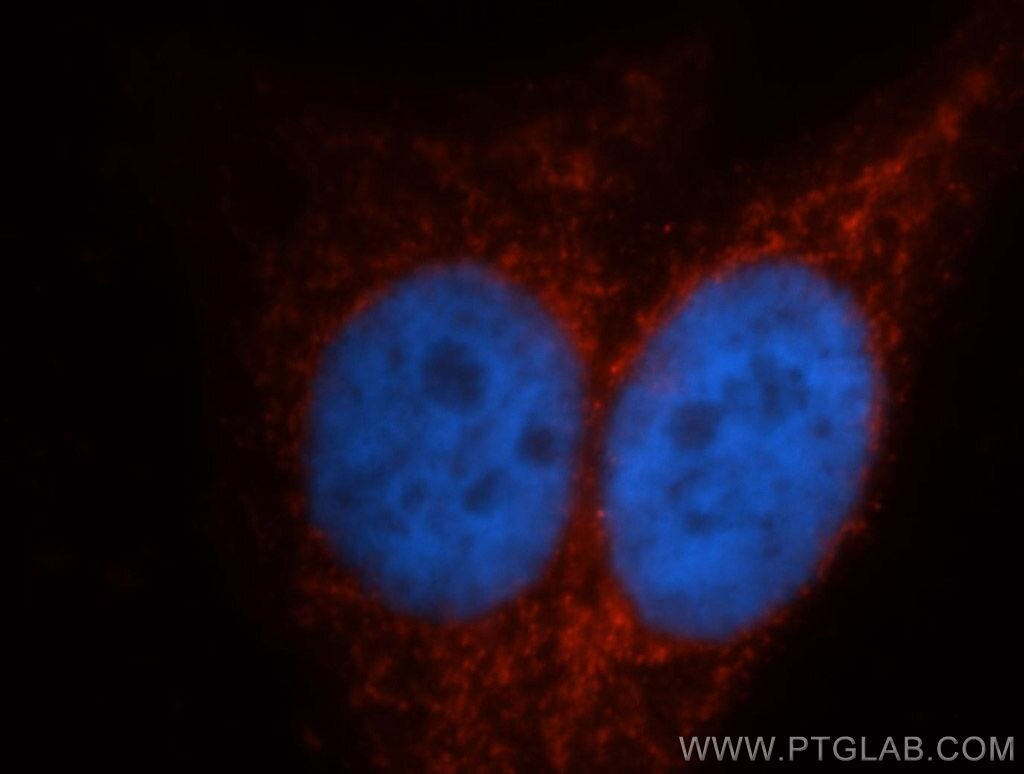- Featured Product
- KD/KO Validated
ITPKA Polyklonaler Antikörper
ITPKA Polyklonal Antikörper für IF, IHC, IP, WB,ELISA
Wirt / Isotyp
Kaninchen / IgG
Getestete Reaktivität
human, Maus, Ratte
Anwendung
WB, IP, IHC, IF, ELISA
Konjugation
Unkonjugiert
Kat-Nr. : 14270-1-AP
Synonyme
Galerie der Validierungsdaten
Geprüfte Anwendungen
| Erfolgreiche Detektion in WB | Maushirngewebe |
| Erfolgreiche IP | Maushirngewebe |
| Erfolgreiche Detektion in IHC | humanes Gliomgewebe Hinweis: Antigendemaskierung mit TE-Puffer pH 9,0 empfohlen. (*) Wahlweise kann die Antigendemaskierung auch mit Citratpuffer pH 6,0 erfolgen. |
| Erfolgreiche Detektion in IF | HepG2-Zellen |
Empfohlene Verdünnung
| Anwendung | Verdünnung |
|---|---|
| Western Blot (WB) | WB : 1:500-1:3200 |
| Immunpräzipitation (IP) | IP : 0.5-4.0 ug for 1.0-3.0 mg of total protein lysate |
| Immunhistochemie (IHC) | IHC : 1:100-1:400 |
| Immunfluoreszenz (IF) | IF : 1:20-1:200 |
| It is recommended that this reagent should be titrated in each testing system to obtain optimal results. | |
| Sample-dependent, check data in validation data gallery | |
Veröffentlichte Anwendungen
| KD/KO | See 1 publications below |
| WB | See 7 publications below |
| IHC | See 3 publications below |
| IF | See 2 publications below |
Produktinformation
14270-1-AP bindet in WB, IP, IHC, IF, ELISA ITPKA und zeigt Reaktivität mit human, Maus, Ratten
| Getestete Reaktivität | human, Maus, Ratte |
| In Publikationen genannte Reaktivität | human, Maus |
| Wirt / Isotyp | Kaninchen / IgG |
| Klonalität | Polyklonal |
| Typ | Antikörper |
| Immunogen | ITPKA fusion protein Ag5588 |
| Vollständiger Name | inositol 1,4,5-trisphosphate 3-kinase A |
| Berechnetes Molekulargewicht | 51 kDa |
| Beobachtetes Molekulargewicht | 51 kDa |
| GenBank-Zugangsnummer | BC026331 |
| Gene symbol | ITPKA |
| Gene ID (NCBI) | 3706 |
| Konjugation | Unkonjugiert |
| Form | Liquid |
| Reinigungsmethode | Antigen-Affinitätsreinigung |
| Lagerungspuffer | PBS mit 0.02% Natriumazid und 50% Glycerin pH 7.3. |
| Lagerungsbedingungen | Bei -20°C lagern. Nach dem Versand ein Jahr lang stabil Aliquotieren ist bei -20oC Lagerung nicht notwendig. 20ul Größen enthalten 0,1% BSA. |
Hintergrundinformationen
ITPKA(Inositol-trisphosphate 3-kinase A) belongs to the inositol phosphokinase (IPK) family. It accumulates in dendritic spines and seems to be critically involved in synaptic plasticity. The protein possesses two functional activities. In neurons, ITPKA is targeted to F-actin via an N-terminal actin binding domain (amino acids 1-66) and is relevant for long term potentiation and spatial learning(PMID:20022963).
Protokolle
| Produktspezifische Protokolle | |
|---|---|
| WB protocol for ITPKA antibody 14270-1-AP | Protokoll herunterladen |
| IHC protocol for ITPKA antibody 14270-1-AP | Protokoll herunterladen |
| IF protocol for ITPKA antibody 14270-1-AP | Protokoll herunterladen |
| IP protocol for ITPKA antibody 14270-1-AP | Protokoll herunterladen |
| Standard-Protokolle | |
|---|---|
| Klicken Sie hier, um unsere Standardprotokolle anzuzeigen |
Publikationen
| Species | Application | Title |
|---|---|---|
Neuron Nicotinamide Pathway-Dependent Sirt1 Activation Restores Calcium Homeostasis to Achieve Neuroprotection in Spinocerebellar Ataxia Type 7. | ||
J Mol Cell Biol Single-cell transcriptomes reveal molecular specializations of neuronal cell types in the developing cerebellum. | ||
Int J Cancer Functional role of inositol-1,4,5-trisphosphate-3-kinase-A for motility of malignant transformed cells.
| ||
Neuroscience Sex-specific Regulation of Spine Density and Synaptic Proteins by G-protein-coupled Estrogen Receptor (GPER)1 in Developing Hippocampus. | ||
Cytoskeleton (Hoboken) The catalytic domain of inositol-1,4,5-trisphosphate 3-kinase-A (ITPKA) contributes to ITPKA-induced modulation of F-actin. | ||
